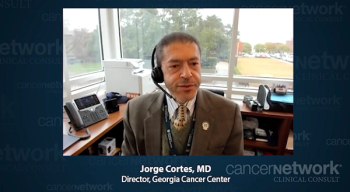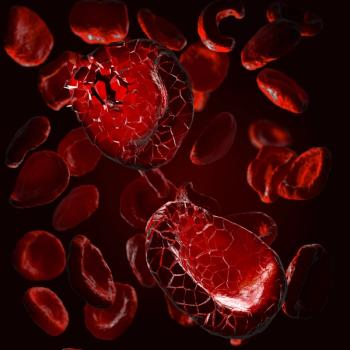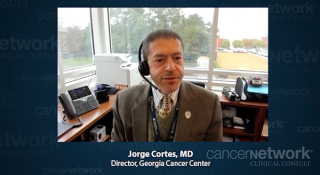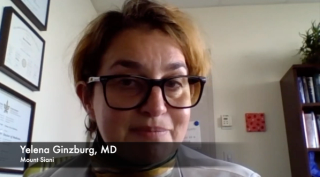
Hematologic Oncology
Latest News

Latest Videos

CME Content
More News

Expert insights on selecting the appropriate patients and dose for treatment with the lenvatinib plus pembrolizumab regimen in patients with renal cell carcinoma.

Experts open their discussion on RCC by reviewing the clinical scenario of a patient with favorable-risk disease who is treated with the TKI/IO regimen of lenvatinib and pembrolizumab.

Yi-Bin Chen, MD, shares insight on unmet needs and the future treatment landscape for patients with chronic GVHD and steroid-refractory GVHD.

Yi-Bin Chen, MD, evaluates the safety and efficacy of ruxolitinib for second-line treatment for steroid-refractory chronic GVHD and discusses clinical implications from the REACH3 trial.

An expert in hematology/oncology reviews study data and results from the phase 3 REACH3 trial for steroid-refractory chronic graft-vs-host disease.

Dr Yi-Bin Chen discusses the indications of ibrutinib, ruxolitinib, and belumosudil in steroid-refractory chronic graft-vs-host disease and shares his approach to selecting the optimal therapy for patients.

Yi-Bin Chen, MD, reviews the currently available FDA-approved therapies for the management of steroid-refractory chronic GvHD.

An expert in hematology-oncology comments on the importance of early detection and intervention of steroid-refractory chronic GvHD [graft-versus-host disease] and considers approaches to switching treatments.

Jorge E. Cortes, MD and Hagop Kantarjian, MD share a summary on ponatinib in CML and ALL and exploration of potential future studies.

An expert in hematology/oncology comments on the importance of early detection and intervention of steroid-refractory chronic GvHD and considers approaches to switching treatments.

A supplemental new drug application has been submitted to the FDA for ibrutinib to help treat pediatric and adolescent patients with chronic graft versus host disease.

Conflicts of interest for junior faculty members were evaluated at top cancer centers by Suneel D. Kamath, MD, et al. to determine how financial conflicts of interest correlated with measures of academic career productivity.

ONCOLOGY co-editor-in-chief Julie M. Vose, MD, MBA, re-caps the 2021 American Society of Hematology conference and discusses which presentations were the most important.

A label update for the CAR T-cell therapy product axicabtagene ciloleucel has been approved by the FDA to allow for use of prophylactic corticosteroid to manage cytokine release syndrome.

SNIPR001 has received a fast track designation by the FDA for the prevention of blood infections in patient with hematologic malignancies.

Research from the Journal of Clinical Oncology suggests that venetoclax is a promising option for patients diagnosed with previously treated Waldenström macroglobulinemia.

Investigators believe that storing red blood cells in a hypoxic state could reduce the development of vaso-occlusion flowing transfusion.

Patients receiving hematopoietic stem cell transplantation appeared to have improved outcomes and a decreased incidence of acute graft-versus-host disease after being treated with itolizumab.

Patients who have been diagnosed with acute graft-versus-host disease with high levels of amphiregulin could be at a higher risk for early mortality.

Recommendations for treating patients with steroid-refractory chronic GVHD based on evidence demonstrated by the REACH3 trial.

Rituximab-subcutaneously is associated with significantly reduced chair time vs rituximab-intravenously in a US oncology setting. Widespread adoption would be expected to improve practice efficiency and patient access to care, and to reduce health care resource burden.

Abatacept can now be used for the prevention of acute graft-versus-host disease following its approval by the FDA.

Depression and anxiety notably impact how patients with hematologic malignancies view clinical studies.

Investigators noted that patients with acute myeloid leukemia, acute lymphoblastic leukemia, and myelodysplastic syndrome who were diagnosed with COVID-19 were more likely to experience COVID-19 mortality vs non-cancer patients.

Orca-T improved efficacy outcomes over standard of care therapy for patients with serious hematologic malignancies.









































